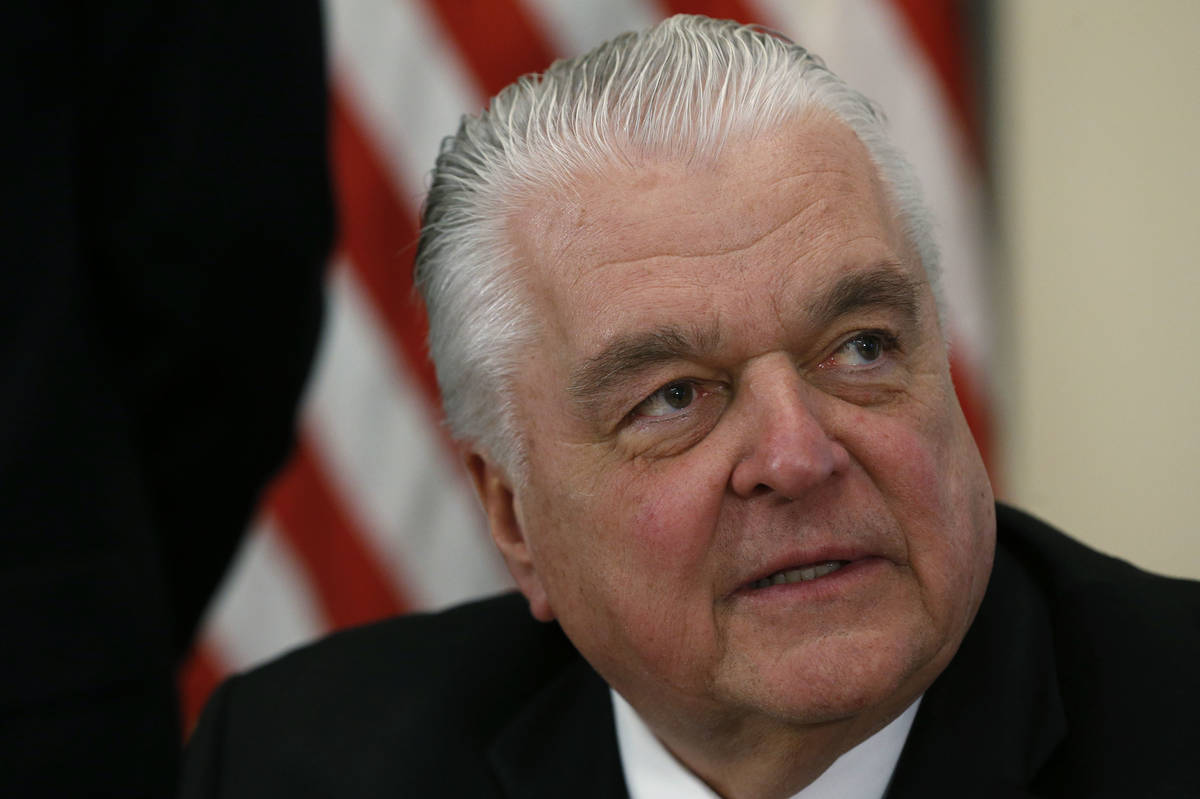
Suddenly, you’re nobody in Nevada if somebody isn’t trying to recall you.
Gov. Steve Sisolak is the subject of one recall, filed by people unhappy with his orders to shut down nonessential businesses to slow the tide of the coronavirus.
And ironically enough, Las Vegas Mayor Carolyn Goodman has become the subject of a recall for the opposite reason, her vehement calls for the city to reopen immediately.
Spoiler alert: Neither is going to get recalled.
There are many reasons, not the least of which are that the rules for recalls make success nearly impossible. And the rules only got tighter after a group of Republicans tried to stage a coup in 2017 with recalls aimed at a trio of state senators, all of which failed.
Recalls should be difficult and reserved for the most serious of cases when an obviously corrupt official refuses to step down. But Nevada’s constitution and laws are all about the mechanics of conducting a recall and are entirely silent on the justifications for one.
The progressive-era framers of the constitutional language that authorized recalls assumed that the people themselves were smart enough to discern whether a public official was worthy of recall. They left as much latitude in the premises as possible. And that turned out to be the right approach.
For example, those 2017 recalls all failed to get the minimum number of valid signatures — although not before an epic court battle over the right of people to strike their signature from a recall petition after it’s been submitted.
The city of Las Vegas also provides some useful recall history. In 2011, then-Councilman Steve Ross was targeted. The first effort failed to get enough signatures, but a second effort succeeded and Ross went on the ballot — where voters retained him overwhelmingly.
But back in 2005, also in Las Vegas, voters decided that then-Councilwoman Janet Moncrief should be recalled in the midst of a campaign finance scandal.
In Sisolak’s case, the odds are overwhelming stacked against recallers from the start. First, they need to collect signatures from 25 percent of the people who voted in the 2018 election — or 242,950 valid signatures.
That would be hard enough in normal times. But during the coronavirus pandemic it’s virtually impossible. That’s why the recall group — which has dubbed itself “Fight for Nevada” sued — asking for the signature-gathering deadline to be expanded by the same number of days the state has been in coronavirus lockdown. A judge rejected a temporary restraining order in that case Friday.
Court filings revealed that, during the first 45 days of the recall (which took place before the governor’s stay-at-home orders), recallers managed to gather just 15,892 signatures. That’s an average of 353 signatures per day. Assuming all are valid, Fight for Nevada wouldn’t just need an additional two or three months to complete its task. It would need nearly two years.
No, the Sisolak recall wasn’t doomed by the coronavirus, the measures taken to slow its spread or ballot deadlines. It was doomed by the fact that hardly anybody in Nevada wants to recall their governor.
That shouldn’t come as a surprise: The Nevada Poll, commissioned by the Review-Journal, found that 65 percent of Nevadans supported Sisolak’s handling of the crisis and just 27 percent disapproved.
For Goodman, the results were nearly the opposite, with 61 percent disapproving of her calls to reopen and 33 percent saying they support her, according to the poll. But even so, that doesn’t mean she needs to start worrying about packing up her office.
One potential wrinkle: The Review-Journal’s Jeff German reported last week that resort entrepreneur Stephen Cloobeck is bankrolling the Goodman recall, which was begun by retired poker pro Doug Polk. Polk says Goodman put the interests of commerce ahead of the interests of her constituents by pushing for the reopening. Goodman herself acknowledged in a CNN interview that she’d offered Las Vegas as a “control group” to study reopening amid the coronavirus pandemic.
Is that enough to get the popular Goodman tossed from office? Although anything in politics is easier with money, based on history, the answer is almost certainly no.
Recalls in Nevada are difficult in part because they require a broad consensus among voters that an elected official is no longer worthy of trust and confidence. While most people love to complain about their politicians, when it comes to ousting them in a recall, most voters are more forgiving than vengeful.
Contact Steve Sebelius at SSebelius@reviewjournal.com or 702-383-0253. Follow @SteveSebelius on Twitter.